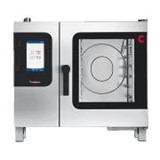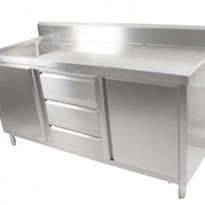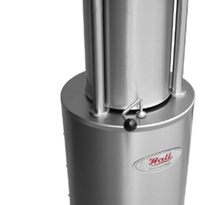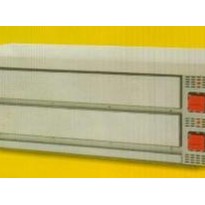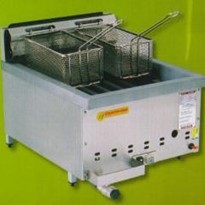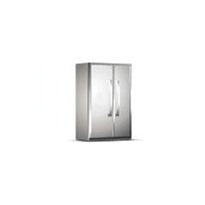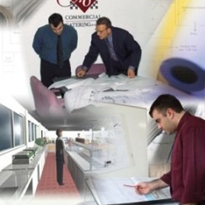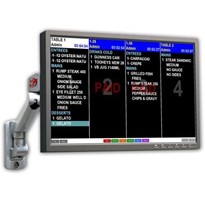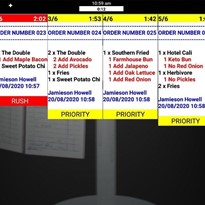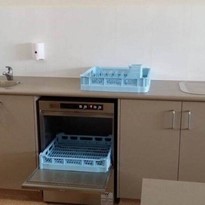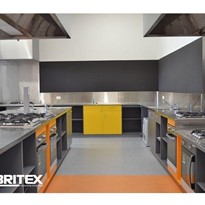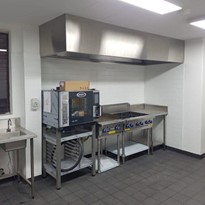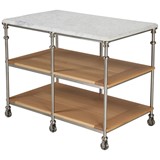Learning how to choose the right kitchen equipment supplies can be a daunting task, especially with the vast array of options available in the market.
Whether you're setting up your first kitchen, upgrading your existing tools, or simply looking to enhance your cooking experience, this guide is your ultimate source of insights and tips. Join us as we unravel the secrets to selecting the perfect restaurant equipment supplies, ensuring that your cooking endeavors are always met with success.
Table Of Contents:
-
Essential Guide: How to Choose the Right Kitchen Equipment Supplies?
-
Understanding the Importance of Choosing the Right Kitchen Equipment Supplies
-
Factors to Consider When Choosing Kitchen Equipment
-
Assessing Your Kitchen Equipment Needs
-
Determining Specific Requirements Of Your Kitchen
-
Essential Equipment For Your Restaurant Or Foodservice Business
-
Researching and Selecting Kitchen Equipment Suppliers
-
Navigating Through Customer Reviews
-
Taking Advantage of Digital Platforms
-
Assessing Equipment Quality and Durability
-
Maintenance Requirements Matter Too.
-
Maximising Efficiency and Productivity in Your Kitchen
-
Choosing High-Quality Equipment for Maximum Efficiency
-
Organizing Your Kitchen Layout for Optimal Workflow
-
Digital Technology Incorporation: The Future Is Now.
-
Ensuring Food Safety and Quality
-
Temperature Control: The Key to Safe Food Handling
-
Cross-Contamination Prevention with Proper Equipment Usage
-
Maintenance Routines for Cleanliness & Efficiency
-
Budgeting for Kitchen Equipment
-
Finding Your Budget Balance
-
Making Smart Choices with Suppliers
-
Frequently Asked Questions:
-
What are the factors to consider when choosing kitchen equipment?
-
What are the 4 classifications of kitchen tools and equipment?
-
How to choose commercial kitchen equipment?
-
What should I equip my kitchen with?
-
Conclusion
Understanding the Importance of Choosing the Right Kitchen Equipment Supplies
Selecting the right kitchen supplies is not just about having shiny new appliances. It's about making sure your commercial kitchen runs like a well-oiled machine, ensuring efficiency and productivity.
Kitchen equipment plays a massive role in determining food quality and safety compliance. A refrigerator that is energy-efficient can help to maintain ingredients at the correct temperature, thereby reducing wastage and ensuring food safety. On the other hand, a poorly functioning oven can lead to undercooked or overcooked dishes, resulting in unhappy customers and potential health hazards.
Aside from functionality and safety, investing in the right kitchen equipment supplies can also save you money in the long run. High-quality and durable appliances may come with a higher price tag initially, but they will end up being more cost-effective due to their longevity. This means less frequent replacements and repairs, as well as reduced energy consumption.
Moreover, choosing the right kitchen equipment can also enhance the overall dining experience for your customers. From faster cooking times to more consistent results, having top-notch appliances can help your chefs create delicious dishes with ease. This will not only impress your customers but also keep them coming back for more.
In addition to these practical benefits, choosing the right kitchen equipment supplies can also have a positive impact on your restaurant's aesthetic. Sleek and modern appliances can add to the overall ambiance of your commercial kitchen, making it a more pleasant and inviting space for both employees and customers.
With all these factors in mind, it's clear that selecting the right kitchen equipment supplies is crucial for the success of any food business.
Factors to Consider When Choosing Kitchen Equipment
The task of selecting kitchen equipment is more than just a shopping spree. It's about ensuring maximum efficiency and meeting food safety standards while staying within your kitchen equipment budget.
Assessing Your Kitchen Equipment Needs
Your kitchen's size, layout, and volume of food preparation are all key factors in determining the specific requirements for your restaurant or food service business. These elements dictate the types of appliances needed to run a smooth operation.
The first step is to evaluate your menu. What kind of cuisine do you serve? This will determine whether you need specialized equipment like pasta machines or pizza ovens. If it's an international menu, you might require diverse pieces like woks and tandoor ovens.
Think about the number of dishes you're intending to provide in a day. A busy establishment needs sturdy equipment that can withstand heavy usage without compromising performance. Industry Kitchens, one such supplier, offers high-quality commercial-grade materials perfect for bustling restaurants.
Determining Specific Requirements Of Your Kitchen
A small café won't have the same needs as a large fine dining restaurant when it comes to choosing kitchen equipment. Assess your available space and think about what kinds of appliances fit into this area while still allowing easy movement for staff during service hours.
Essential Equipment For Your Restaurant Or Foodservice Business
Certain items are non-negotiable when setting up any type of eatery: refrigeration units, cooking ranges, oven/grill combo units just to name a few. It’s crucial these essentials match both your capacity requirements and expected turnover rates – don’t forget cleaning ease too.
Researching and Selecting Kitchen Equipment Suppliers
Finding reliable kitchen equipment suppliers is a vital step for any food service business. It's not just about comparing prices, but also looking at warranties, customer reviews, and the range of products on offer.
The current international supply chain issues can affect product delivery times and availability. Therefore, it’s crucial to evaluate delivery details thoroughly when researching different suppliers' offerings.
A good supplier should be transparent about these potential challenges. Industry Kitchens, for example, offers real-time inventory updates to help restaurant owners plan their purchases better.
Another aspect worth considering is how efficient the supplier's supply chain is. Remember that time equals money in the fast-paced world of catering. Quick deliveries mean you won't have your kitchen operations interrupted due to missing or delayed supplies.
A great commercial kitchen equipment supplier doesn't stop providing value after the sale has been made. Top-notch customer service goes hand-in-hand with quality supplies; look out for companies that provide excellent after-sales support like extended warranty periods or maintenance advice.
Navigating Through Customer Reviews
Taking note of what customers have experienced before can give you a glimpse into what dealing with a specific supplier could be like. You'll get firsthand information regarding product quality, timeliness of deliveries, and even how they handle issues if something goes wrong.
Taking Advantage of Digital Platforms
Digital platforms are becoming increasingly important tools in finding high-quality suppliers as well as connecting directly with them through social media channels or online chat options which can lead to more personalized deals. Social media can also help you keep updated on the latest offers or innovations from your chosen kitchen equipment supplier.
Assessing Equipment Quality and Durability
When making purchases for a commercial kitchen, it's crucial to evaluate the quality and durability of the items. Remember, commercial kitchens are demanding environments where only high-quality appliances can withstand constant use over an extended period.
Opting for energy-efficient choices not only reduces environmental impact but also lowers operational costs in the long run. If you want to reduce utility bills without compromising performance or service life, consider choosing Energy Star-rated items.
Additionally, it's important to weigh repair costs against initial costs. While some high-quality products may seem expensive upfront, they often require fewer repairs, saving you money in the long term. So, don't let the initial price discourage you from purchasing something that may ultimately prove to be less expensive.
Maintenance Requirements Matter Too.
Last, but certainly not least, we must consider the maintenance requirements. How challenging will it be to ensure the smooth operation of this machine? High-quality appliances often come with extended warranties, a testament to the manufacturer's confidence in their product's longevity.
This reliability goes beyond the initial cost. Fewer repairs mean less downtime that can disrupt business operations in the future, ultimately resulting in long-term benefits from your investment.
Ensuring equipment is well-maintained also contributes to a safe working environment for your staff and reduces the risk of accidents.
Key Takeaway:
Choosing the right kitchen equipment involves striking a balance between capacity, performance, energy efficiency, and ease of use. It's crucial to opt for robust appliances that can handle intense usage in commercial settings without compromising food quality or safety. Consider factors like power output, size based on menu requirements, service life expectancy and Energy Star rating when making your selection. But remember this isn't all there is to it - don't overlook other essential aspects such as maintenance costs and customer support services.
Maximising Efficiency and Productivity in Your Kitchen
The right kitchen equipment can significantly enhance your restaurant's efficiency. By selecting high-quality appliances, you create an optimal workflow layout that lets your team work more productively.
Choosing High-Quality Equipment for Maximum Efficiency
Incorporating digital technology into commercial kitchens is becoming the norm. Smart appliances help to reduce cooking times, lower energy consumption, and improve food quality. A connected kitchen setup even allows real-time monitoring of equipment performance for quick fixes when needed.
To boost productivity further, staff training on proper usage and maintenance of these smart machines should be a priority. It ensures they’re able to make full use of their features while minimising breakdowns due to misuse or neglect.
Organizing Your Kitchen Layout for Optimal Workflow
An effective kitchen design considers the flow from prep areas through cooking stations up until plating and serving points - this reduces wasted movement in the space. Having dedicated zones prevents cross-contamination between raw ingredients and cooked dishes too.
Digital Technology Incorporation: The Future Is Now.
We are witnessing an evolution where traditional kitchens transform into technologically advanced operations capable of producing top-notch meals faster than ever before. And if there's one thing we know about customers - it’s that they appreciate speedy service without compromising food quality.
A successful eatery's centre is a kitchen that has all the necessary equipment. So, make sure it beats with maximum efficiency and productivity.
Ensuring Food Safety and Quality
Ensuring food safety and quality are important factors to consider when choosing commercial kitchen equipment. Proper temperature control and prevention of cross-contamination are crucial in maintaining the integrity of the food you serve. Prioritising these aspects, you can confidently ace your food safety practices and provide customers with top-notch culinary experiences.
Temperature Control: The Key to Safe Food Handling
The right equipment can help ensure proper heating or cooling of your meals. Bacteria can be eliminated by heating food above 60°C and growth prevented through cooling food below 5°C, as mandated in the Food Standards Code.
Cross-Contamination Prevention with Proper Equipment Usage
Cross-contamination is another potential issue that could impact both food safety and hygiene levels. But don’t worry, your commercial kitchen equipment is designed for easy cleaning – making sure that raw meat juices don’t end up on your fresh salad greens.
Maintenance Routines for Cleanliness & Efficiency
A clean kitchen isn't only important for aesthetics but also contributes significantly towards ensuring safe operations. Regularly scheduled maintenance routines will keep everything running smoothly while minimizing the chances of contaminations.
Remember, serving great-tasting food starts with prioritising safety standards behind the scenes.
Budgeting for Kitchen Equipment
Getting the balance right between quality products and your kitchen equipment budget can feel like a high-wire act. The fact is, that buying commercial kitchen gear is a large investment that can significantly impact profits.
The trick here isn't to find the cheapest options; it's about understanding the total cost of ownership over the lifespan. A low-cost piece might need replacing or fixing more often than you'd like, draining not just your wallet but also your time and energy.
So where do we start? First off, have an in-depth look at financing options available from suppliers. Some may offer leasing programs which could be worth considering if you're tight on upfront cash. Don't shy away from asking questions – knowledge is power after all.
Finding Your Budget Balance
Your ideal sweet spot should factor in both the initial purchase price and potential repair costs down the line. Consider investing more in essential restaurant items likely to see heavy use - this approach generally pays off long-term as these pieces will require less frequent repairs or replacements due to their extended service life.
Making Smart Choices with Suppliers
A reliable commercial kitchen equipment supplier won’t just sell equipment; they'll guide you through making choices best suited for your business needs while respecting your budget constraints.
Remember: good quality doesn't always mean the most expensive. With careful planning, savvy decision-making skills, and trusted suppliers by your side - kitting out a commercial-grade kitchen without breaking the bank becomes far easier than it initially seems.



